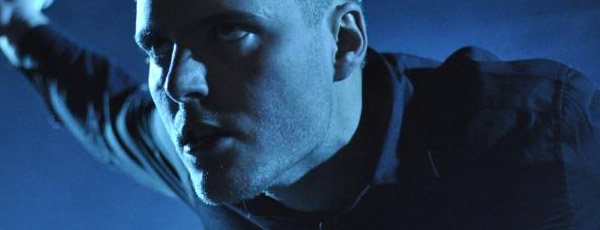
Tracks
Deafheaven: "Dream House"
(2013)
By Corey Beasley | 24 June 2013
Deafheaven just released what might be one of the year’s best-loved records with Sunbather, yet many of the critics and listeners fawning over the album, myself included, aren’t the same people you’d normally find packed into a dark, humid basement to watch a black metal bill. If we’re being honest, this is due in large part to the genre’s vocals: to those of us who rarely listen to black metal, they can be—and let me use a very precise, highly technical word—silly. We can just admit that, right? That a dude screaming at peak volume with no modulation for the length of a ten-or-fifteen-minute track has the tendency to give many of us a rush of secondhand embarrassment?
Deafheaven manage to step around the walls of their genre in a way most metal acts never do, however, and here’s the trick: aside from George Clarke’s vocals, a song like “Dream House” doesn’t quite register as black metal. In fact, it doesn’t register in the easy confines of any one genre. Chiming guitars and drums in half-time hit with the poppier side of post-rock, more Explosions in the Sky than burning-church-on-icy-Norwegian-hellscape. The sheer volume in the mix follows a clear path set by shoegaze progenitors like Slowdive (Clarke’s favorite band) or My Bloody Valentine in its emphasis on melody and tone instead of violating your eardrums for the sake of violence itself. The dynamism offered by swirling post-rock or shoegaze into black metal tropes, both in terms of the song’s structure and its emotional mood, makes “Dream House” a lush and utterly immersive experience.
But those vocals remain, and so do those double-pedal taps on the kickdrum, and the palm-mutes that come after the shredding. Deafheaven doesn’t want to sneak the black metal foundation of “Dream House” past you. Rather, they want you to hear these elements differently, decontextualized just enough to make them sound fresh and, in an amazing coup for a genre bent on full-throttle aggression and pummeling displays of sonic force, nuanced. Clarke’s vocals, Deafheaven’s biggest potential sticking point with converts to the band’s sound, are the best example. Given no particular primacy in the mix, they become almost purely instrumental, just another thread in a complexly woven assault. In fact, despite what some of the band’s detractors in the black metal scene might have you think, it’s Clarke’s very refusal to dilute his vocal approach that makes it work: because he screams so loudly and so consistently, any scrap of intelligibility in his lyrics gets obliterated. You stop listening for the words and start letting the sound of his voice melt into the rest of the music. The ragged texture of Clarke’s voice conveys enough torment on its own to allow the guitars and drumming to focus on other emotions, creating a juxtaposition of tones that thrills for nine minutes straight. At this point I might even try to sing along—as long as no one’s watching.





